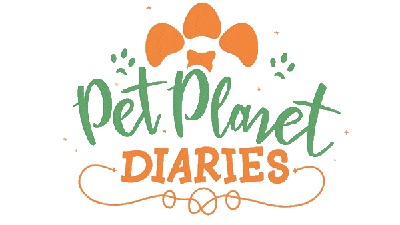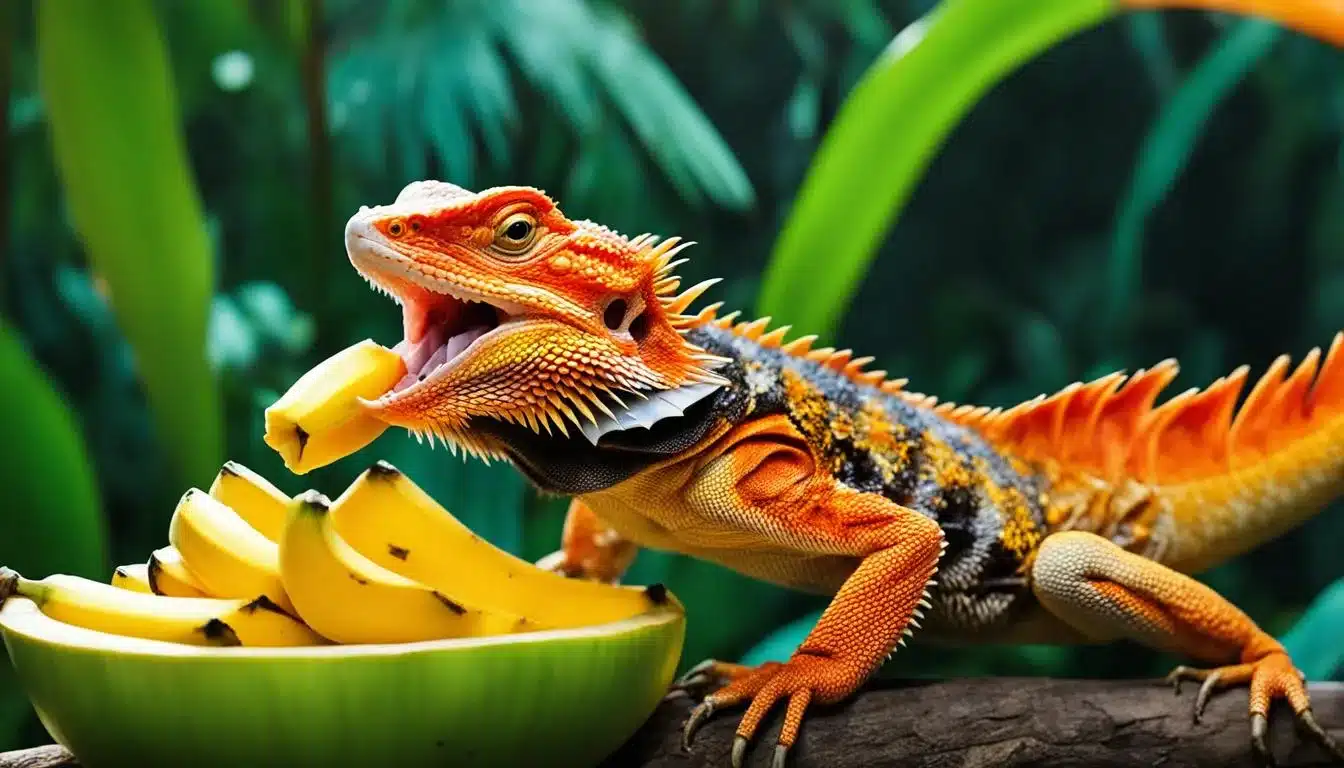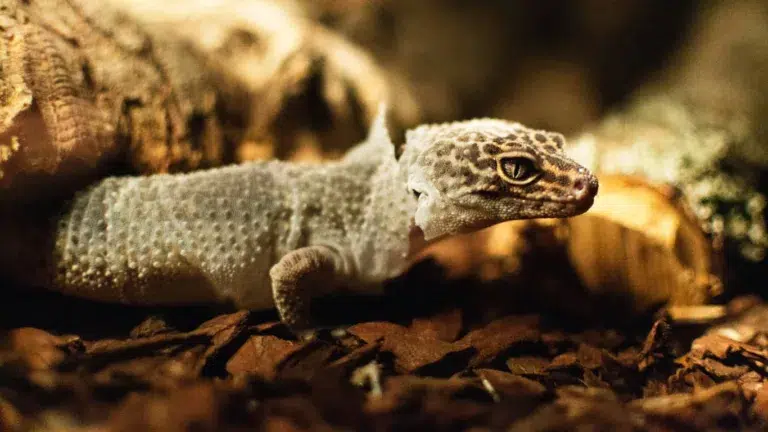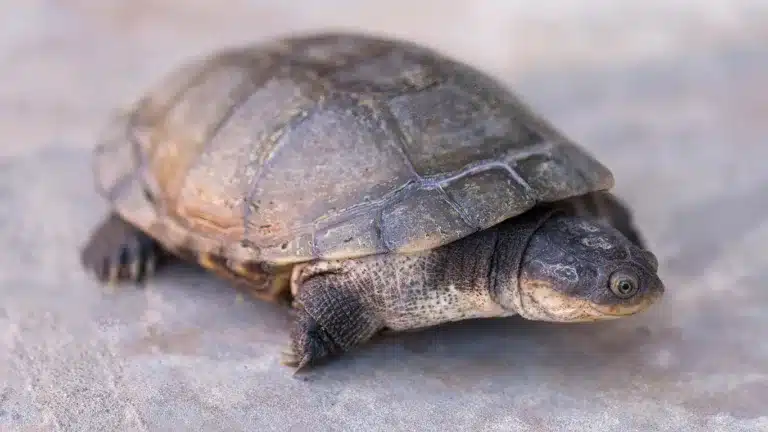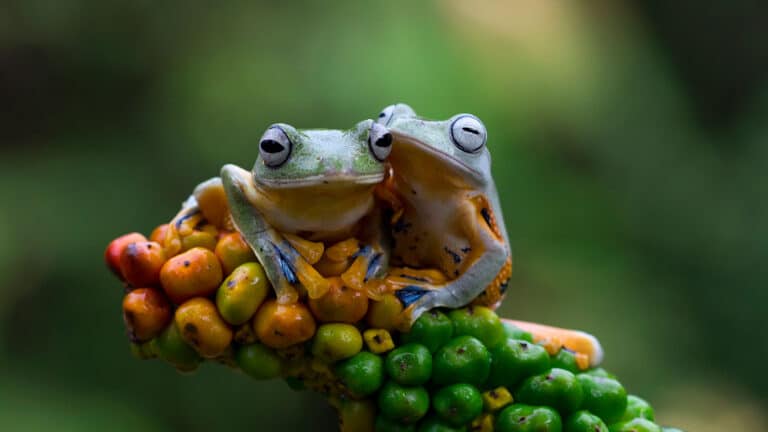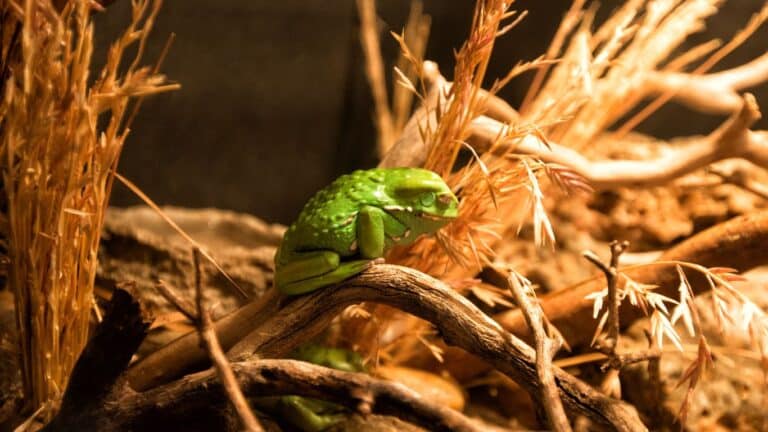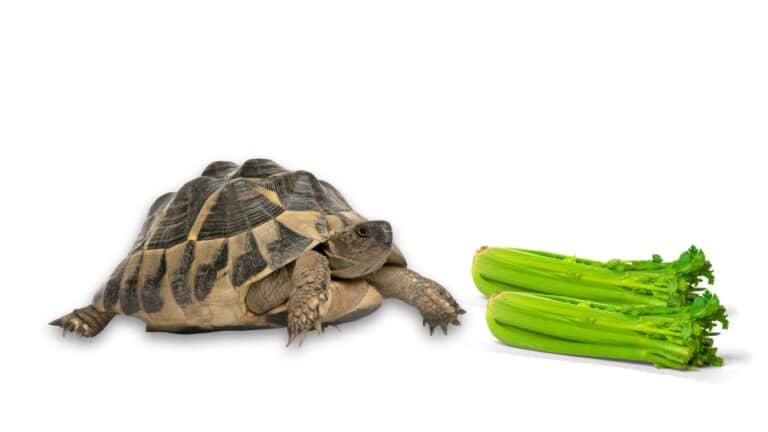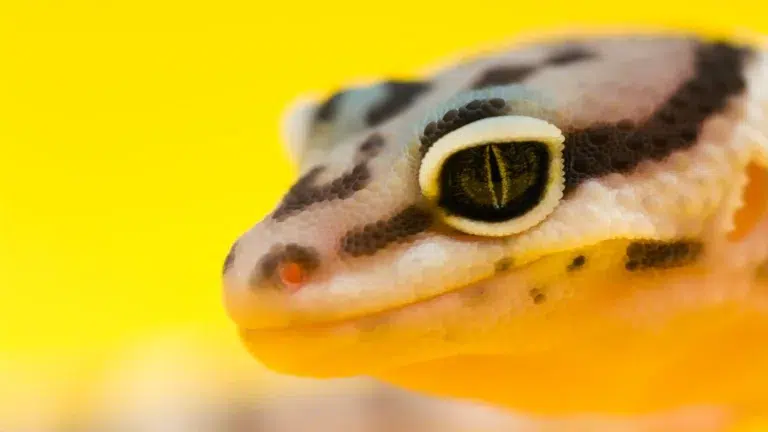Are you a proud owner of a bearded dragon? If so, you may be wondering, ‘Can Bearded Dragons Eat Bananas?’ and if it’s safe to include bananas in your pet’s diet. Well, good news! Bearded dragons can indeed eat bananas, but it’s important to do so in moderation. Here’s what you need to know about the nutritional value and potential risks of feeding bananas to your scaly friend.
Nutritional Nuggets: Key Points:
What Do Bearded Dragons Eat?
Bearded dragons, as omnivores, have a varied diet that consists of both animal-based and plant-based foods. The nutritional needs of bearded dragons change as they age, leading to variations in the ideal ratio of animal-based to plant-based food. Younger beardies require a higher proportion of meat in their diet, while older lizards consume more plant material.
The plant-based portion of a well-balanced bearded dragon diet should include a mix of fruits and vegetables. However, it is important to note that fruits should only make up 10-20% of the plant material, while the majority should be composed of leafy greens and vegetables rich in fiber and nutrients.
Below is a breakdown of the recommended diet for bearded dragons based on their age:
| Age | Animal-Based Food | Plant-Based Food |
|---|---|---|
| 0-3 months | Insects (such as crickets and mealworms) | Leafy greens (such as collard greens and mustard greens) |
| 4-12 months | Insects (such as crickets and dubia roaches) | Mixed vegetables (such as squash and bell peppers) |
| 1 year and older | Insects (such as dubia roaches and superworms) | Diverse vegetables (such as carrots and sweet potatoes) |
Remember, it is crucial to provide a varied and balanced diet to ensure the overall health and well-being of your bearded dragon. Always consult with a veterinarian for personalized nutrition guidance tailored to your pet’s specific needs.
The Benefits of a Balanced Diet for Bearded Dragons
- Ensures proper growth and development
- Enhances immune function
- Promotes strong bones and muscle development
- Sustains healthy skin and eyesight
Feeding your bearded dragon a well-balanced diet is key to its overall health and happiness
How Often Can I Feed my Bearded Dragon Bananas?
When it comes to including bananas in your bearded dragon’s diet, moderation is key. The frequency of feeding bananas depends on the age of your lizard. For younger bearded dragons, it’s best to offer a small amount of banana as a rare treat, ideally no more than once a month. Adult bearded dragons can enjoy bananas slightly more often, up to one or two times a month.
It’s important to remember that while bananas offer some nutritional value, they also contain a high amount of sugar. This can pose health risks to your bearded dragon if consumed in excess. Additionally, bananas have an imbalanced calcium/phosphorus ratio that can disrupt your pet’s overall diet.
To maintain a well-balanced bearded dragon diet, it’s crucial to consider the calcium/phosphorus ratio of 2:1. Excessive banana consumption may lead to calcium deficiencies and potentially metabolic bone disease. Therefore, it’s recommended to limit the frequency of feeding bananas and prioritize a variety of other nutritious foods.
To ensure your bearded dragon’s health and well-being, consult with a veterinarian for personalized dietary recommendations tailored to your pet’s specific needs.

Nutritional Value of Bananas for Bearded Dragons
Bananas are a tasty and nutritious treat for bearded dragons. They contain a variety of essential nutrients that contribute to your pet’s overall health and well-being. Let’s take a closer look at the nutritional value of bananas for bearded dragons. ‘Can Bearded Dragons Eat Bananas’ is a question that arises often among pet owners.
Bananas are a rich source of vitamins and minerals that are beneficial for your bearded dragon’s health. They are packed with vitamin C, which supports a strong immune system and helps prevent illnesses. Vitamin A is also abundant in bananas, promoting healthy eyesight and skin. These vitamins are crucial for your reptile’s daily functioning and growth.
Furthermore, bananas are rich in potassium, an essential mineral that plays a vital role in muscle function and nerve transmission. Potassium helps regulate blood pressure and keeps muscles strong and healthy, ensuring your bearded dragon can move and hunt effectively. ‘Can Bearded Dragons Eat Bananas’ is worth considering when planning their diet.
Bananas also contain antioxidants that combat harmful free radicals in your bearded dragon’s body. These antioxidants contribute to overall health and help prevent disease and cellular damage.
However, it’s important to note that bananas have a high phosphorus content, which can interfere with calcium absorption. A bearded dragon’s diet should maintain a proper balance of calcium and phosphorus to prevent health issues like metabolic bone disease. Be mindful of the calcium/phosphorus ratio in your bearded dragon’s diet and provide a variety of foods to ensure adequate nutrition.

| Nutrient | Amount |
|---|---|
| Vitamin C | 8.7 mg |
| Vitamin A | 64 IU |
| Potassium | 358 mg |
| Antioxidants | Various types |
Incorporating bananas into your bearded dragon’s diet can provide valuable vitamins, minerals, and antioxidants. However, remember to offer them in moderation and alongside a well-balanced variety of other nutritious foods. It’s always best to consult with a reptile veterinarian for personalized advice on your bearded dragon’s diet.
Benefits of Feeding Bananas to Bearded Dragons
Feeding bananas to bearded dragons in moderation can provide several health benefits. These benefits include:
- Improved immune function: Bananas are rich in vitamin C, which supports a strong immune system and helps your bearded dragon fight off infections and diseases.
- Promotes healthy skin and eyesight: The vitamin A in bananas is essential for maintaining healthy skin and promoting good eyesight in bearded dragons.
- Regulates blood pressure: Bananas are a great source of potassium, which helps regulate blood pressure in bearded dragons, promoting a healthy cardiovascular system.
- Supports proper muscle function: Potassium also plays a vital role in muscle function, ensuring that your bearded dragon’s muscles work properly.
- Lower cholesterol levels: The antioxidants found in bananas can help lower cholesterol levels in bearded dragons, reducing the risk of heart problems.
Feeding your bearded dragon bananas as part of a balanced diet can provide these health benefits and contribute to their overall well-being.
| Health Benefits of Bananas | How it benefits Bearded Dragons |
|---|---|
| Vitamin C | Improves immune function |
| Vitamin A | Promotes healthy skin and eyesight |
| Potassium | Regulates blood pressure and supports proper muscle function |
| Antioxidants | Lower cholesterol levels and reduce the risk of heart problems |

Risks of Feeding Bananas to Bearded Dragons
Can Bearded Dragons Eat Bananas? While bananas offer some nutritional benefits, they should be given sparingly to your bearded dragon. This is primarily due to the high sugar content in bananas, which can pose several risks to your pet’s health.
Bananas are known for their sweet taste, but this sweetness comes from a high sugar content. Feeding too many bananas to your bearded dragon can lead to obesity, tooth decay, and digestive problems. These risks are especially concerning considering that obesity and tooth decay can have long-term detrimental effects on your dragon’s overall well-being and quality of life.
Furthermore, bananas also have an imbalanced calcium/phosphorus ratio. Bearded dragons require a proper calcium/phosphorus balance in their diet to maintain strong bones and overall health. Consuming an excess of phosphorus without sufficient calcium intake can lead to calcium deficiencies, causing health conditions such as metabolic bone disease.
It’s important to note that while bananas can be an occasional treat, they should not be a staple food in a bearded dragon’s diet. Instead, prioritizing a diverse range of foods that provide the necessary nutrients in the correct ratios will ensure your dragon’s health and well-being.
Remember, moderation is key when it comes to feeding bananas to your bearded dragon. By offering a well-balanced diet and limiting the amount of bananas, you can help your pet avoid the potential risks associated with excessive sugar intake and an imbalanced calcium/phosphorus ratio. Can Bearded Dragons Eat Bananas?

| Risks of Feeding Bananas to Bearded Dragons | Action to Take |
|---|---|
| High Sugar Content | Feed bananas sparingly to avoid obesity, tooth decay, and digestive problems. |
| Calcium/Phosphorus Imbalance | Ensure a balanced diet with appropriate calcium/phosphorus ratios to prevent calcium deficiencies and metabolic bone disease. |
Can Bearded Dragons Eat Banana Peels and Leaves?
Bearded dragons can eat banana peels, which provide them with healthy nutrients such as vitamin B12, vitamin B6, and protein. However, it’s important to note that the fibrous texture of the peels can pose a choking hazard to your pet. To prevent any potential risks, ensure that you cut the banana peels into small, bite-sized pieces before feeding them to your bearded dragon. ‘Can Bearded Dragons Eat Bananas’ is a common question among pet owners, and while banana peels are generally safe, moderation is key.
While there is limited information available on feeding banana leaves to bearded dragons, it is possible that they contain beneficial vitamins and fiber. Nevertheless, it is crucial to cut the banana leaves into small pieces to prevent any choking incidents. Always prioritize the safety and well-being of your pet when introducing new foods into their diet, and remember the keyword ‘Can Bearded Dragons Eat Bananas’ when researching suitable dietary options.
Keep in mind that every bearded dragon is different, and their tolerance for certain foods may vary. Always monitor your bearded dragon closely when feeding them banana peels or leaves for the first time to ensure they can handle it without any issues. If you notice any signs of discomfort or digestive problems, discontinue feeding them banana peels or leaves and consult with a reptile veterinarian for further guidance.
| Benefits of Feeding Banana Peels | Risks of Feeding Banana Peels |
|---|---|
| Source of vitamin B12Source of vitamin B6Contains protein | Potential choking hazardVarying tolerance among bearded dragons |

The Role of Calcium in a Bearded Dragon’s Diet
Calcium plays a crucial role in a bearded dragon’s diet, contributing to strong bones and overall health. It is an essential mineral that must be adequately provided through their diet to support proper growth and development.
Bearded dragons have specific calcium requirements that need to be met to ensure optimal health. A key factor to consider is the calcium/phosphorus ratio, which is crucial for calcium absorption and utilization. It is recommended to maintain a balanced ratio of 2:1 or 1:1 between calcium and phosphorus in a beardie’s diet.
When the calcium/phosphorus ratio is inadequate, it can lead to serious health issues, such as metabolic bone disease (MBD). MBD is a condition characterized by weakened bones, fractures, and deformities, resulting from calcium deficiencies and imbalances.
To prevent the development of MBD, it is essential to ensure that a bearded dragon’s diet includes sufficient calcium and an appropriate calcium/phosphorus ratio. Adequate calcium levels contribute to the growth, strength, and overall well-being of your pet.
Importance of Calcium in a Bearded Dragon’s Diet
Calcium is vital for various physiological processes in bearded dragons, including:
- Supporting proper bone development and maintaining bone density
- Aiding in muscle function and contraction
- Regulating nerve transmission
- Contributing to blood clotting
- Supporting proper heart function
It is important to note that calcium should be provided alongside a balanced diet that includes other essential nutrients. Besides calcium, bearded dragons also require a variety of vitamins, minerals, and proteins to thrive.

Meeting Calcium Needs in a Bearded Dragon’s Diet
There are several ways to ensure that a bearded dragon’s calcium needs are met:
- Feeding calcium-rich foods: Offer calcium-rich foods such as calcium dusted insects (such as crickets and mealworms) and dark, leafy greens (like collard greens and kale).
- Supplementing with calcium: Dusting insects with a calcium supplement that includes vitamin D3 ensures that your dragon receives adequate calcium. This helps counterbalance the limited amount of calcium in commercial diets or plant-based foods.
- Providing proper lighting: Ultraviolet (UV) lighting, specifically UVB rays, is crucial for bearded dragons to synthesize and absorb calcium properly. Ensure that your pet has access to UVB lighting in their habitat.
By paying careful attention to the calcium/phosphorus ratio in a bearded dragon’s diet and providing appropriate calcium sources, you can help prevent calcium deficiencies and promote optimal health in your pet.
| Calcium-Rich Foods for Bearded Dragons | Approximate Calcium Content (in mg) |
|---|---|
| Collard Greens (1 cup, chopped) | 266 |
| Kale (1 cup, chopped) | 180 |
| Mustard Greens (1 cup, chopped) | 165 |
| Turnip Greens (1 cup, chopped) | 197 |
| Bok Choy (1 cup, chopped) | 74 |
| Calcium-Dusted Crickets (10 crickets) | 10-60 (depending on size) |
“A balanced ratio of calcium to phosphorus is crucial for the proper development and overall health of bearded dragons. Adequate calcium levels ensure strong bones, proper muscle function, and overall well-being.”
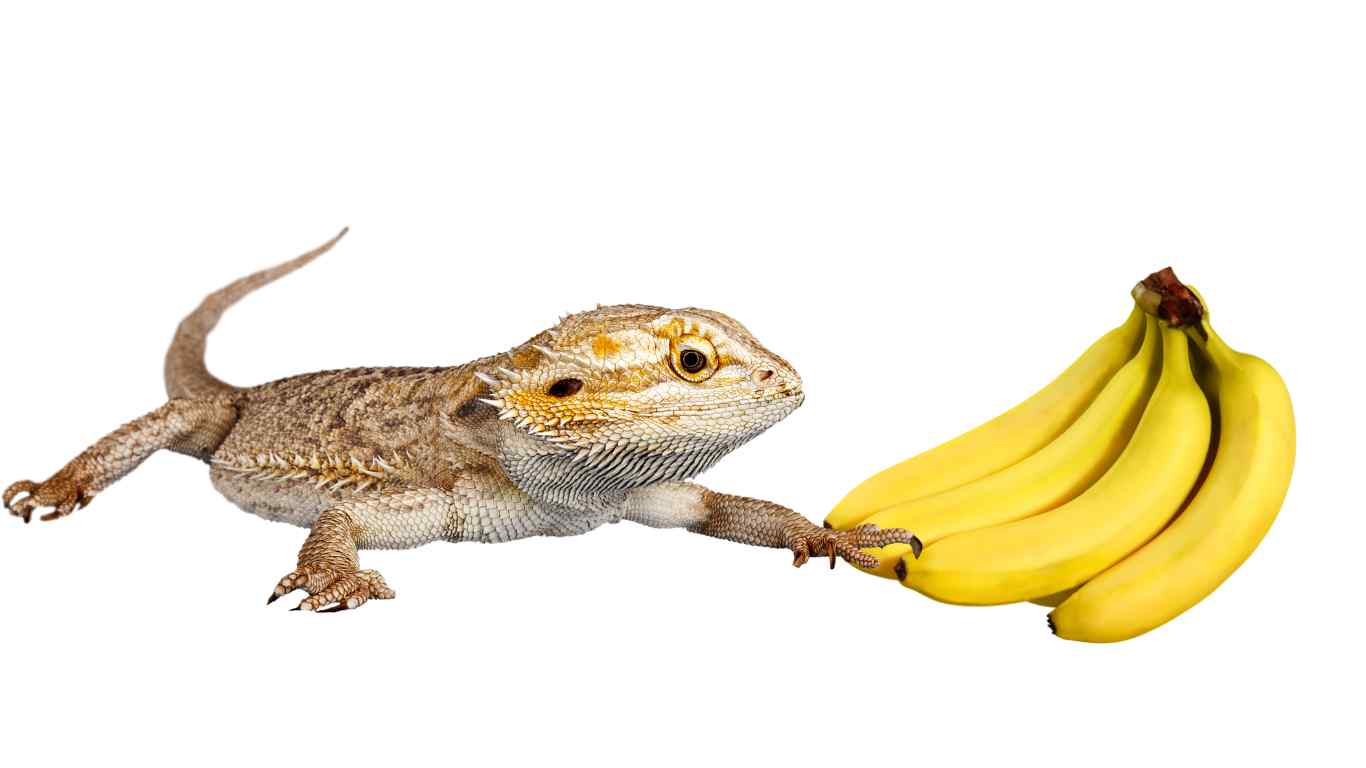
Dangers of Excessive Banana Consumption for Bearded Dragons
Feeding bearded dragons excessive amounts of bananas can have detrimental effects on their health. One of the significant dangers is the risk of developing metabolic bone disease (MBD). MBD is a debilitating condition that affects the bones, causing weakness, softness, and deformities. It occurs when a dragon’s diet is deficient in calcium and too high in phosphorus. Bananas, despite their nutritional value, contain high levels of phosphorus and have an imbalanced calcium/phosphorus ratio, which can contribute to the development of MBD if consumed excessively.
| Health Risks | Consequences |
|---|---|
| Metabolic Bone Disease (MBD) | Weak and deformed bones |
| Calcium Deficiency | Impaired bone health and growth |
Bearded dragons require a proper balance of calcium and phosphorus in their diet to maintain optimal bone health. Excessive banana consumption can disrupt this delicate balance, leading to calcium deficiencies and ultimately contributing to the development of metabolic bone disease. This is why it is crucial to feed bananas in moderation and ensure a well-rounded diet that consists of a variety of foods that meet the specific nutritional needs of bearded dragons.
Can Bearded Dragons Eat Bananas? To prevent the risks associated with excessive banana consumption, it is important to create a balanced diet that includes other calcium-rich foods and supplements. Regular visits to a veterinarian specializing in reptile care can also provide valuable guidance in ensuring your bearded dragon’s diet is nutritionally sound and meets their specific needs. Can Bearded Dragons Eat Bananas?
Proper Preparation of Bananas for Bearded Dragons
When it comes to preparing bananas for your bearded dragons, there are a few important steps to follow to ensure their safety and enjoyment. Here are some feeding tips and serving suggestions to keep in mind:
- Wash Thoroughly: Regardless of whether the bananas are organic or not, it is crucial to wash them thoroughly before offering them to your beardie. This helps remove any dirt or residue that may be present on the skin.
- Slice into Bite-Sized Pieces: To prevent choking, it is recommended to slice the banana into small, bite-sized pieces. This makes it easier for your bearded dragon to consume and reduces the risk of any potential hazards.
- Peel or No Peel: Bearded dragons have different preferences when it comes to eating bananas with or without the peel. Some may enjoy munching on the peel, while others may prefer just the fruit. Observe your dragon’s eating habits and offer bananas accordingly.
- Monitor While Eating: It is important to keep an eye on your bearded dragon while they are eating bananas. This allows you to ensure they are eating the fruit safely and prevents any mishaps or accidents that could occur.
- Clean Up Leftover Food: Once your bearded dragon has finished eating their portion of bananas, it is essential to clean up any leftover food promptly. This helps prevent spoilage and keeps their enclosure clean and hygienic.
By following these feeding tips and serving suggestions, you can prepare bananas in a way that is safe and enjoyable for your bearded dragon.
| Feeding Tips | Serving Suggestions |
|---|---|
| Wash bananas thoroughly | Offer bananas with or without the peel |
| Slice bananas into small, bite-sized pieces | Monitor your bearded dragon while eating |
| Observe your dragon’s preferences | Clean up leftover food promptly |
Note: Remember to always feed bananas in moderation as part of a balanced diet for your bearded dragon. Consult with a reptile veterinarian for personalized feeding recommendations.
Incorporating Bananas into a Balanced Bearded Dragon Diet
Now that you know the proper preparation of bananas for your bearded dragons, it’s essential to understand how to incorporate them into a balanced diet. Bananas should make up only a small portion of a bearded dragon’s overall food intake. To ensure optimal nutrition, offer a variety of animal-based and plant-based foods.
“Proper nutrition for your bearded dragon is key to their health and well-being. By providing a diverse menu of foods, you are helping them thrive.”
When feeding bananas to your bearded dragon, remember that they should be given sparingly due to their high sugar content. The primary focus of their diet should be on protein-rich insects and a variety of leafy greens and vegetables.
By following these guidelines and incorporating bananas as a treat rather than a staple food item, you can maintain a healthy and balanced diet for your bearded dragon.
Incorporating Bananas into a Balanced Bearded Dragon Diet
When it comes to feeding your bearded dragon, incorporating bananas into their diet can be a tasty treat. However, it’s important to do so in moderation and ensure a balanced diet for their overall health and well-being.
A balanced bearded dragon diet should consist of a variety of animal-based and plant-based foods to provide the necessary nutrients. While fruits like bananas can be included, they should make up only a small portion of the overall diet. Fruits, including bananas, should ideally account for no more than 10-20% of the plant material in your beardie’s meals.
Remember that bearded dragons are omnivores, and their nutritional needs change as they grow older. Younger beardies require more meat in their diet, while older lizards eat more plant material. Therefore, it’s crucial to provide a diverse range of foods to ensure they receive optimal nutrition.
Here are some tips for incorporating bananas into a balanced bearded dragon diet:
- Feed bananas in moderation: While it’s safe for bearded dragons to eat bananas, they should be given sparingly as an occasional treat due to their high sugar content. Too many bananas can lead to obesity and other health issues.
- Combine with other fruits and vegetables: To provide a variety of nutrients, consider mixing small chunks of banana with other fruits and vegetables in your beardie’s meals. This will ensure they get a balanced range of vitamins and minerals.
- Supplement with animal-based foods: Alongside plant-based foods, bearded dragons also require a source of animal protein. Include insects such as crickets and mealworms in their diet to meet their protein needs.
- Consult with a veterinarian: Every bearded dragon is unique, and their dietary needs may vary. It’s always a good idea to consult with a reptile veterinarian to ensure you’re providing the best diet for your specific dragon.
By incorporating bananas in moderation and offering a variety of foods, you can create a balanced bearded dragon diet that promotes their health and happiness. Remember to monitor their diet closely and make adjustments as needed based on their age, overall health, and specific nutritional requirements.
Join the Pet Planet Diaries
Sign up for our newsletter to get the latest tips, stories, and exclusive insights into the wonderful world of pets.
Final Remarks
In brief, it is safe for bearded dragons to eat bananas, but it is important to do so in moderation. While bananas provide nutritional benefits such as vitamins, minerals, and antioxidants, they should only be given sparingly due to their high sugar content. Feeding your bearded dragon too many bananas can lead to health issues, including obesity, tooth decay, and digestive problems.
Additionally, bananas can disrupt the calcium/phosphorus balance in a bearded dragon’s diet. These reptiles require a specific ratio of calcium to phosphorus for proper bone health and overall well-being. Excessive banana consumption can contribute to imbalances and potentially lead to calcium deficiencies and metabolic bone disease.
To ensure the best nutrition for your bearded dragon, it is crucial to provide a varied and balanced diet. This includes a mix of animal-based and plant-based foods in appropriate proportions. Consult with a veterinarian for personalized nutrition guidance tailored to your pet’s specific needs. By taking these precautions, you can keep your bearded dragon healthy and thriving.
FAQ
Can bearded dragons eat bananas?
Yes, it is safe to serve your bearded dragon bananas. However, they should only be given sparingly as an occasional tasty treat. Bearded dragons are omnivores and require a balanced diet of animal-based and plant-based foods. The optimal ratio of animal to plant-based food varies with age, with younger beardies eating more meat and older lizards eating more plant material. Fruit should make up only 10-20% of the plant material in a well-balanced beardie diet.
What do bearded dragons eat?
Bearded dragons are omnivores and eat a mixture of both animal-based and plant-based foods. The ideal ratio of animal-based (insects) to plant-based (fruit and vegetables) food varies with age. Younger beardies require more meat in their diet, while older lizards eat more plant material. Fruit should only make up 10-20% of the plant material in a well-balanced beardie diet.
How often can I feed my bearded dragon bananas?
The amount of plant-based food in a bearded dragon’s diet varies depending on their age. Younger lizards should only be given a small amount of banana, ideally no more than once a month. Adult bearded dragons can have a little more, up to one or two times a month. Bananas should be considered a rare treat due to their high sugar content and the potential for calcium/phosphorus imbalances. It’s important to note that the calcium/phosphorus ratio should be 2:1 in a beardie’s diet.
What is the nutritional value of bananas for bearded dragons?
Bananas contain various essential nutrients for bearded dragons, including vitamin C, vitamin A, potassium, and antioxidants. These nutrients promote a strong immune system, healthy eyesight, good muscle function, and overall growth and development. However, it’s important to note that the high phosphorus content in bananas can interfere with calcium absorption, leading to potential health issues such as metabolic bone disease.
What are the benefits of feeding bananas to bearded dragons?
Feeding bananas to bearded dragons in moderation can provide several benefits. The vitamin C and vitamin A in bananas can improve immune function and promote healthy skin and eyesight. Potassium in bananas helps regulate blood pressure and supports proper muscle function. Antioxidants found in bananas can also lower cholesterol levels and reduce the risk of heart problems.
What are the risks of feeding bananas to bearded dragons?
While bananas offer some nutritional benefits, they should be given sparingly due to their high sugar content. Feeding too many bananas can lead to obesity, tooth decay, and digestive problems in bearded dragons. Additionally, the calcium/phosphorus ratio in bananas is not ideal for beardies, which can lead to calcium deficiencies and metabolic bone disease if consumed in excess.
Can bearded dragons eat banana peels and leaves?
Bananas contain various essential nutrients for bearded dragons, including vitamin C, vitamin A, potassium, and antioxidants. These nutrients promote a strong immune system, healthy eyesight, good muscle function, and overall growth and development. However, it’s important to note that the high phosphorus content in bananas can interfere with calcium absorption, leading to potential health issues such as metabolic bone disease.
What is the role of calcium in a bearded dragon’s diet?
Calcium plays a crucial role in a bearded dragon’s diet, as it is necessary for strong bones and overall health. However, the calcium/phosphorus ratio is essential, as an imbalance can lead to serious health issues, including metabolic bone disease. Bearded dragons require a calcium to phosphorus ratio of 2:1 or 1:1 in their diet to ensure proper calcium absorption and utilization.
What are the dangers of excessive banana consumption for bearded dragons?
Feeding bearded dragons excessive amounts of bananas can lead to serious health issues, particularly metabolic bone disease (MBD). MBD is a debilitating condition that causes weak, soft, and deformed bones. It occurs when a dragon’s diet is low in calcium and high in phosphorus. Bananas, with their high phosphorus content and imbalanced calcium/phosphorus ratio, can contribute to the development of MBD if consumed in excess.
How should I prepare bananas for bearded dragons?
When preparing bananas for bearded dragons, it is important to wash them thoroughly, even if they are organic. Slicing the banana into small, bite-sized pieces is recommended to prevent choking. Bananas can be served with or without the peel, depending on your beardie’s preference. It is crucial to monitor your dragon while eating bananas to ensure they eat them safely and clean up any leftover food to prevent spoilage.
How should I incorporate bananas into a balanced bearded dragon diet?
Bananas should be incorporated into a bearded dragon’s diet in moderation, as they should make up only a small portion of the overall diet. A balanced bearded dragon diet should consist of a variety of animal-based and plant-based foods, with fruits making up no more than 10-20% of the plant material. It is important to provide a diverse range of foods to ensure optimal nutrition for your bearded dragon.
